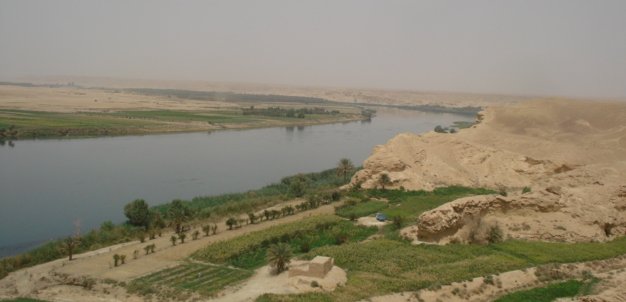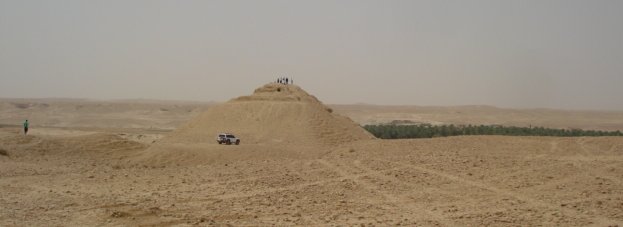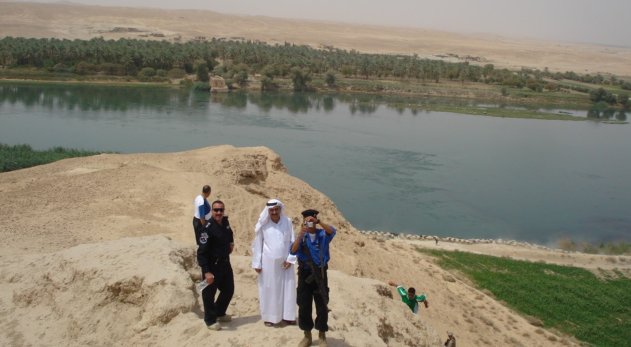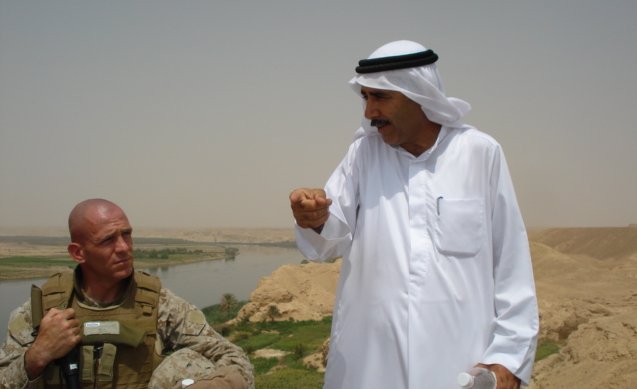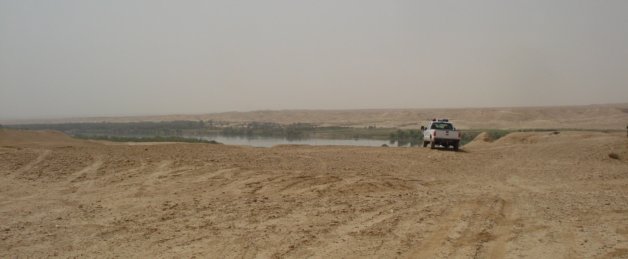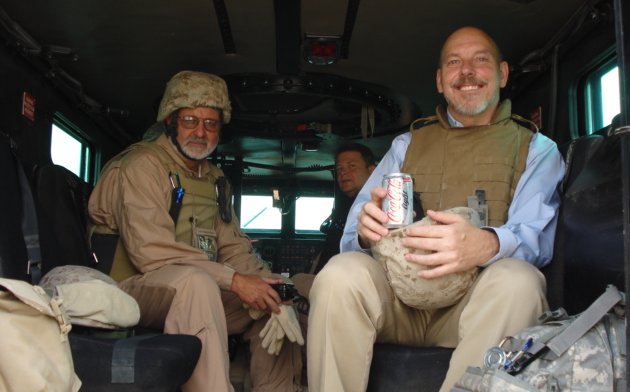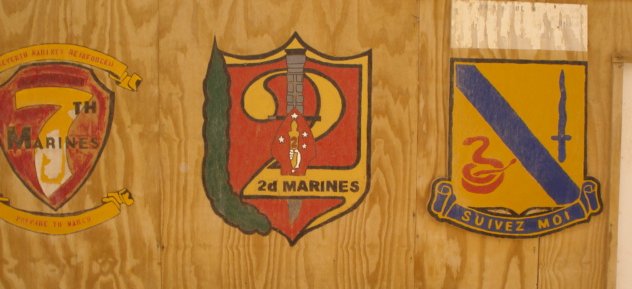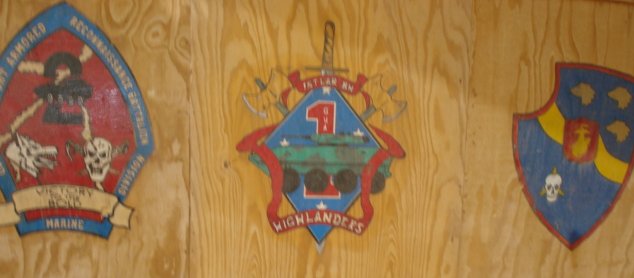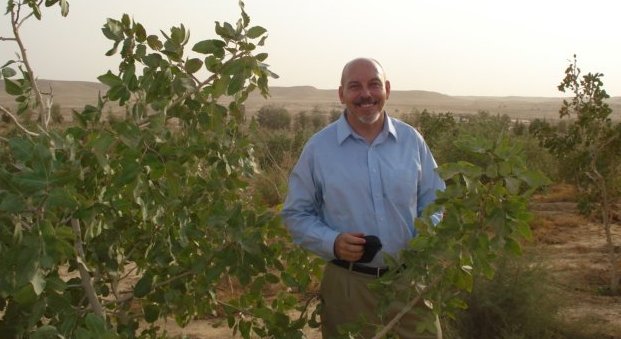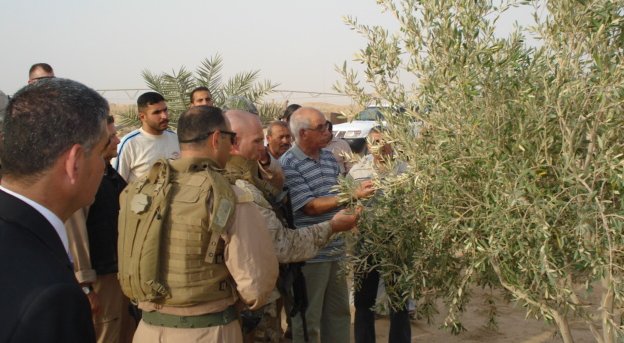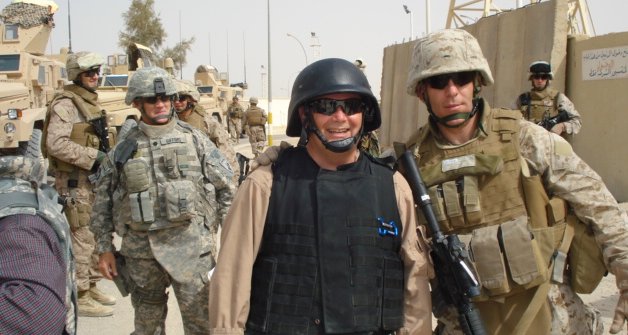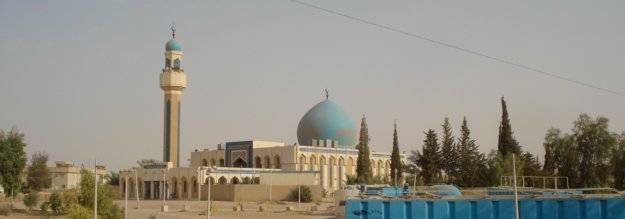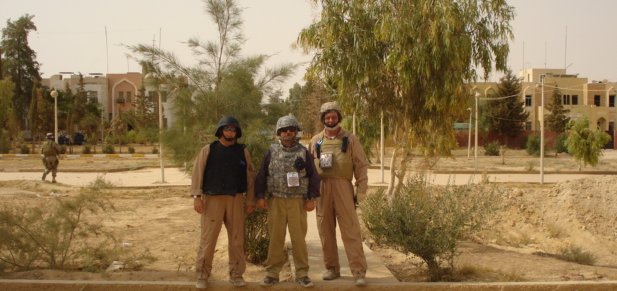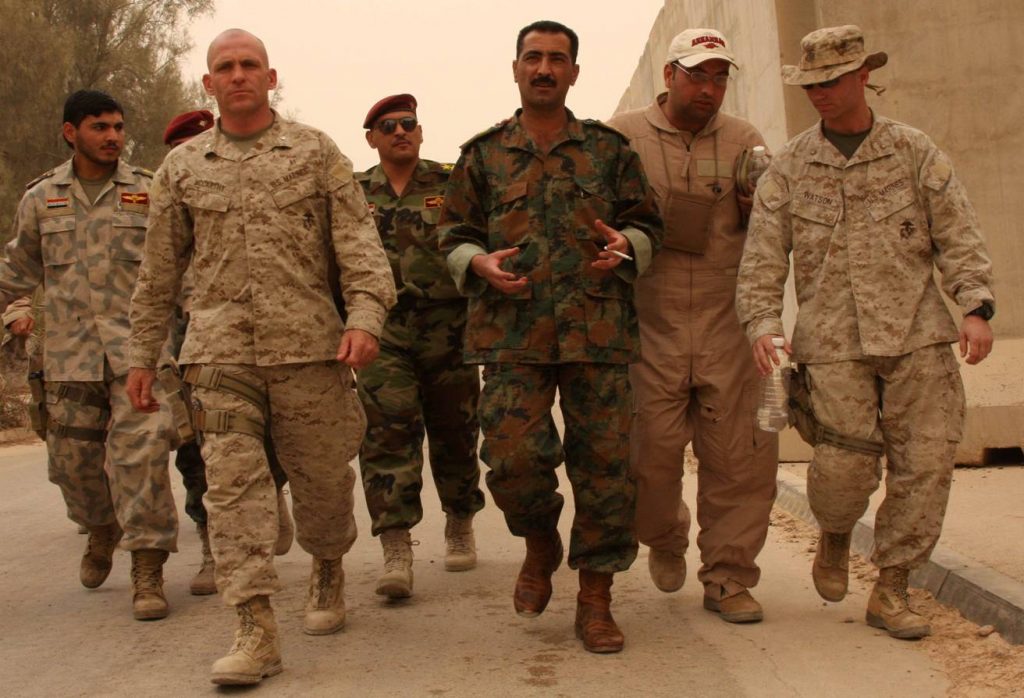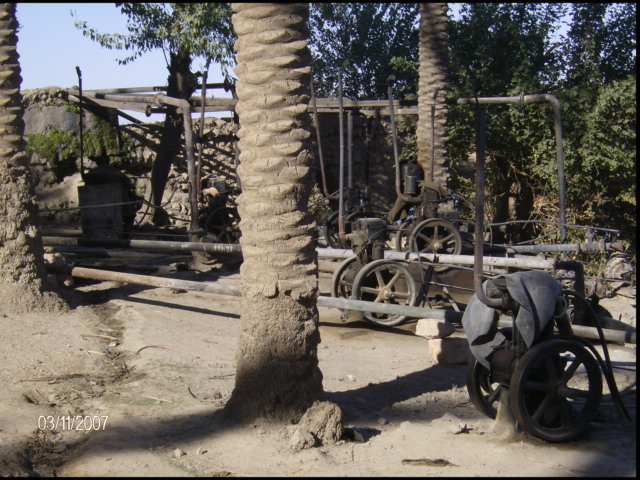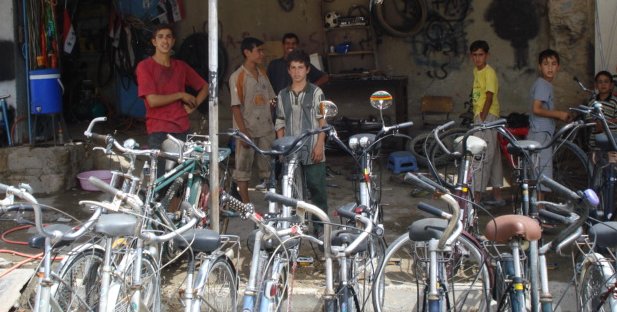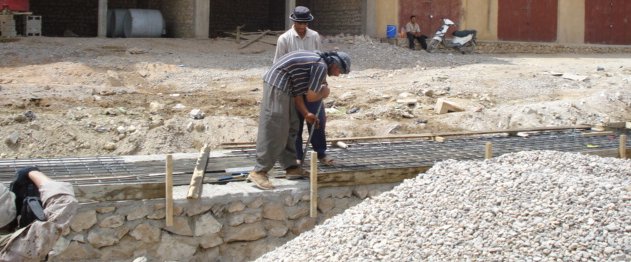We were canc’d for our trip to Al Qaim by bad weather, so I am stuck at Al Asad w/o any new Iraqi stories to tell. But I still can produce blog entries.
After Iraq I will go back to my job in public diplomacy. I have been thinking about that in my spare time and when I think I write. These are just my thoughts about some of the big trends. We will soon be in a new administration and some people expect a big change in our image overseas. I don’t. Not in the long term. We will get a bounce in January as everybody welcomes the new president, but it will be ephemeral. I worked for Reagan, Bush, Clinton and Bush. The only thing I have noticed about opinions of our presidents is that people always seem to like the last president better than the current one. I have seen more continuity than change in both our policies and our image. Many of the trends are long term. British Lord Palmerston cynically noted that, “Nations have no permanent friends or allies; they have only permanent interests.” I find that depressing, but it is true that what we are will trump what we say in the long run.
We were never as popular as some people remember nor are we as unpopular now as some people think. Foreigners usually claim that they like the idea of America in general, but the often don’t like much about anything in particular about its current manifestation. This is a long term problem. On the other hand, they also say that they don’t like the current American government, but they like most Americans. It is just a very complex situation. The overall American reputation has clearly suffered under George W. Bush, but is our reputation so dependent on one man? Can Obama or McCain change that?
I have been watching America’s image overseas for more than twenty-five years. What I have observed is that some things have changed more than others. We have never been widely loved by the so-called intelligencia overseas, with a few exceptions, such as in Eastern Europe. I was there. I remember. But during the Cold War their criticism could go only so far. European pacifists might claim that America and the Soviet Union were morally equivalent, but they knew they were lying. Demonstrations in those days were a kind of burlesque theater, with nice looking props and good displays of pseudo-emotion but not much real substance. They were well orchestrated, often partially funded by the KGB and featuring lot of sound and fury signifying nothing. Euro-lefties wanted to harass and weaken the U.S., but not so much that we couldn’t defend them from the power of the Soviet Union.
The collapse of the Soviet Union came as a surprise to everyone, although many now claim to have anticipated it. With the benefit of hindsight, they can clearly see the cracks that were not apparent at the time. It took the world several years to figure out that it really had happened and that consequently the U.S. was unbound and the world’s only superpower. A lot of books were written about it with about a five year time lag. The French called us a hyper-power back in the 1990s, and it wasn’t meant as a compliment.
During the Cold War, U.S. power was balanced and constrained by a nearly peer competitor in the Soviet Union. After the collapse of the Evil Empire, the U.S. was free to use its power. In some ways, it was almost compelled to do something. The excuse that U.S. action would provoke an overwhelming Soviet response was removed. It was disquieting.
Iraqi Foreign Minister Tariq Aziz bitterly complained to then Secretary of State James Baker that the U.S. would never have dared attack Iraq if it was still a client of the powerful Soviet Union, and he was right, but that had changed by 1990.
The U.S. also never would have intervened in Bosnia or Kosovo had the Soviet Union still been standing. We would not have been able to invade either Afghanistan or Iraq. The Cold War created caution and a stability because thermonuclear incineration always lurked only around a half hour away. All of today’s leaders grew up in this environment; it seemed permanent. Then, it was gone like the snows of past winters. It was a welcome relief, but many people had grown comfortable with the constraint.
Historians and political scientist have long understood that if any single power emerges unchallenged it will be balanced by others, usually sooner rather than later and usually in by coalition of the weaker powers. In the 1990s, pundits and experts hopefully and probably sincerely declared that the U.S. was immune to the sorts of forces that had affected great powers throughout all of recorded history. We talked about the end of history. What did that even mean?
Our intervention during the first Iraq War did not provoke great backlash (although it provoked a lot more than many recall today) because it was dressed up as a worldwide effort and – more importantly – it was a conservative and self-limiting enterprise. The stated and real goals were to reestablish the previous status quo and leave everything – and everyone – else more or less intact. Bosnia and Kosovo made the Russians and the Greeks lividly angry and disrupted the NATO alliance, but we had the Western Europeans mostly on our side because we were doing their work for them and they were mildly embarrassed that they couldn’t clean their own house.
These adventures did sow the seeds of future troubles. In a small but telling episode in 2000, the French refused to sign onto Albright’s pet project, The Community of Democracies, despite its innocuous declaration that democracy was a good thing. The only thing they really didn’t like about it was that it was greatly favored by America.
George Bush blundered into a growing mess. We were already being accused to being unilateral and arrogant, with some justification. Bush made it worse. He was inexperienced in foreign affairs and it showed. Bush lacked the Clinton duplicity. Clinton had no trouble parsing words and letting people believe what they wanted to hear in them. I say this with admiration more than criticism. Sometimes the sugar coating is all it takes to swallow the bitter pill. For example, Clinton rejected Kyoto and objected to the land mine treaty, but nobody could really tell. Clinton never had any intention acting on these sorts of things, but he was wise enough to obfuscate. Bush told the Texas truth and that doesn’t go over very well in Paris salons.
9/11 created a very interesting situation, one that should be studied closer. Except in places like the Palestinian territories were people openly celebrated, most of the world was sympathetic, but if you look closely at this sympathy you see the seeds of something else. America for the first time in its history was seen as a victim. The attacks seemed to humble the U.S. and bring it down to the level of ordinary countries. Temporarily, the U.S. was less threatening as the world’s superpower and in need of help from others. This didn’t last. Any American president would have reacted aggressively to the attacks. We are an aggressive people, after all, which is how we got to be so powerful. But the Bush Administration and especially Donald Rumsfeld talked a little tougher than was useful. They also made a big mistake in September 2001. The U.S. got all kinds of offers of help from allies and friends. We could have formed a broad coalition of allies who really had autonomy. However, these kinds of coalitions are messy from the military and logistical point of view. Rumsfeld understood that we did not NEED help from the military point of view and that potential helpers would probably get in the way. He was right from the narrow military point of view, but very wrong from a political one. I am not saying we acted completely alone, but the “my way or highway” attitudes came through a bit too often.
I have to add in my personal observation re public diplomacy. In the 1990s, we unilaterally disarmed our information operations. We were told that the Cold War was over and our sort of work was not so much needed anymore. I saw it happening. We closed our libraries and cut our public affairs staffs. I had to close my library in Krakow; we got almost no speaker programs; we closed the consulate in Poznan. And this was happening all over the world. The number of officers in public affairs dropped by almost half and almost nobody got promoted from around 1993-2000. It was a devastating time. A lot of good officers reached their mandatory time in class and were kicked out of the FS. In better times they would have moved ahead to bigger and better things. My point is that after 9/11, when we needed a robust public affairs effort, we just did not have enough people or resources in the field to get the message out because of the cuts. Colin Powell worked hard to make up for the deficit, with his diplomatic readiness initiative, but it takes 7-10 years to develop an experienced FSO. We lost a generation of officers and it hurt. Well, back to the main story.
A wiser political point of view would have been to consult and bring allies along in the process to bind them to the joint enterprise. The alliance would have been clumsier, but more robust. I lay the blame for not doing this at the feet of the President. George Bush was too inexperienced in international politics. Of course, it is really easy to see this now. In times of emergency thing are not as clear. (BTW – Clinton was inexperienced too, but he was lucky to fall into the most benign international environment in history. That started to change in the late 1990s. International experience is helpful.) Instead he took the advice of Cheney and Rumsfeld. They were indeed correct – to a point, but they were solving the current problem at the expense of a future solution. A wise and experienced president would have looked beyond today’s solution to see tomorrow’s problem.
I don’t have the time here to talk about the further degeneration that happened as a result of Iraq, but I believe that the seeds of trouble were sown in September-October of 2001 and not a year later. I am not sure that we could have brought along the Germans or the French, who opposed us for their own domestic political reasons, but it would have been better to start from a stronger base.
As a tangent, I believe that our evident victory in Iraq may make us ostensibly LESS popular because it will show that American strength can win even against an”unbeatable” opponent in the heart of the Middle East. But although the talk will remain acrimonious, maybe even get worse, many of the local power brokers will behave better in the presence of strength than they would have had we been defeated. It reminds me of when I see eagles fly. They are often surrounded and harassed by small birds. After it is all said and done, however, it is better to be the eagle than the pigeon.
My original question was whether or not a new president can get us out of this mess. MY answer is that the American image problem goes way beyond one man, even the president. The meta problem is U.S. power. The president can mitigate the problem, but not by very much. On the plus side, much anti-Americanism is still often burlesque. I have traveled all around and not run into too much of it in REAL life. If Americans behave reasonably well, they are treated reasonably well. Some people have told me that foreigners are nice to me because they want my money. I don’t really believe that but don’t care anyway. If $5 can rent loyalty it is sure a small price and any hatred that can be expunged for a few dollars doesn’t run very deep. Beyond that, our products sell overseas and our investments are welcomed. Thankfully, there is still more sound and fury to anti-Americanism than substance. That is not to downplay the menace of anti-Americanism. It constrains our policy choices in some very real ways. We can mitigate it: we should mitigate it, but we cannot eliminate it. Every place a person in the world turns, he finds Americans, often giving advice. It is no-doubt annoying. Ironically, our image will improve to the extent that our power wanes and/or as other rival centers of power emerge. We can see that happening already in the case of China. Significant “anti-Chinese” sentiment is building up among the chattering classes because of their positions in Darfur or Tibet and their heavy handed management of investments in Africa will soon create a further backlash.
When American is compared to an ideal, we suffer; when compared to something in the real world, we do okay.
The sad fact of human nature is that everybody has to have somebody to dislike and blame for their problems. It doesn’t really matter if it is true or even if they believe it deep down. The political leaders of some crappy little country don’t want to take the blame for the bad conditions created by their policies. Easier to blame the ubiquitous Americans. Even in a well-run country lots of things go wrong. Need someone to blame? The U.S. has served this role for a good many years and we will continue to do that, although we may soon have a little help from rising powers.
